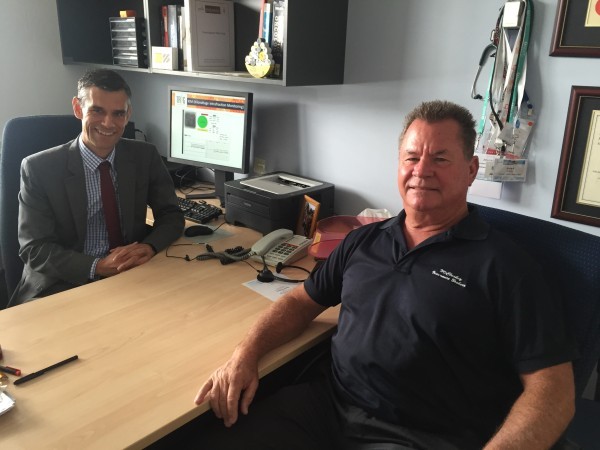New prostate cancer trial will dramatically reduce treatment time


A world-first prostate cancer trial is using revolutionary technology developed in Australia to reduce treatment time and combat side effects.
The Trans Tasman Radiation Oncology Group (TROG) 15.01 SPARK trial aims to improve the accuracy for patients undergoing radiation therapy for prostate cancer, as well as lung, liver, kidney and pancreas cancers.
The technology is called Kilovoltage Intrafraction Monitoring (KIM).
The advantage of KIM is that it enables patient shifting or beam shifting in real time during treatment being delivered to the patient which is why it could potentially improve the accuracy of the treatment and reduce the patient’s side effects.
It allows radiation therapists to access three dimensional images of the position of the cancer in real time and to redirect the radiation beam if the cancer moves by as little as a millimetre, meaning healthy tissue can be avoided and patients suffer fewer side effects.
Due to the accuracy of KIM in targeting tumours, patients can be treated in five half-hour sessions over two weeks as opposed to 40 fifteen minute sessions over eight weeks.
Associate Professor Jarad Martin is the clinical Co-Chair of SPARK, and is excited to be able to offer this promising treatment option for men, initially at the Calvary Mater hospital in Newcastle and eventually to other sites in Australia.
“Radiation therapy is already a safe and effective treatment option for men with prostate cancer. SPARK is another step in us exploring novel ways to make a good treatment even better,” said Dr Martin.
SPARK will recruit 48 patients around Australia and researchers expect the efficacy of the KIM technology to be known in late 2017. The trial is coordinated by TROG Cancer Research, co-funded by Cancer Australia and the Prostate Cancer Foundation of Australia and sponsored by the University of Sydney.
For more information click here



